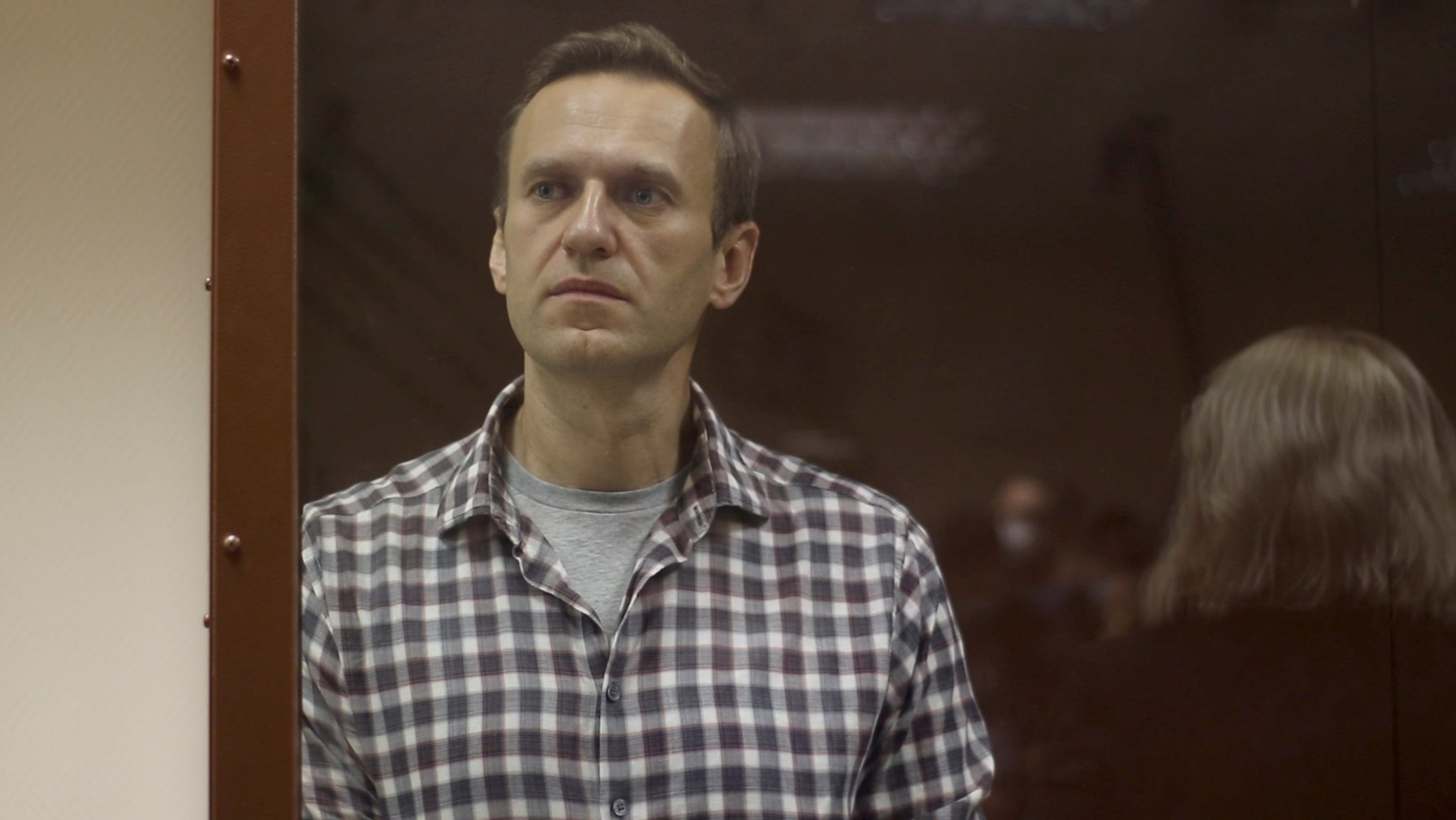Anger after Amnesty strips Navalny of ‘prisoner of conscience’ status
Amnesty made the decision after claiming speeches ‘advocated violence and discrimination’

Your support helps us to tell the story
From reproductive rights to climate change to Big Tech, The Independent is on the ground when the story is developing. Whether it's investigating the financials of Elon Musk's pro-Trump PAC or producing our latest documentary, 'The A Word', which shines a light on the American women fighting for reproductive rights, we know how important it is to parse out the facts from the messaging.
At such a critical moment in US history, we need reporters on the ground. Your donation allows us to keep sending journalists to speak to both sides of the story.
The Independent is trusted by Americans across the entire political spectrum. And unlike many other quality news outlets, we choose not to lock Americans out of our reporting and analysis with paywalls. We believe quality journalism should be available to everyone, paid for by those who can afford it.
Your support makes all the difference.Amnesty International is facing a chorus of criticism over its decision to withdraw a “prisoner of conscience” designation from jailed Kremlin critic Alexei Navalny.
On Tuesday, spokesperson Alexander Artemyev said the human rights organisation had altered its stance after a review of historical speeches that “advocated violence and discrimination”. The NGO would continue to campaign to free the opposition leader, he said, given that he had been persecuted for "political views”.
The move is not entirely without precedent, with Amnesty removing a similar status from Nelson Mandela in 1962 over his advocacy of violent means of opposing Apartheid.
But in what appeared to be a highly significant caveat, Spokesperson Artemyev admitted the review had resulted from what appeared to be a targeted smear operation against Mr Navalny. “Representatives had the impression that requests to look at Navalny’s speeches from 15 years ago were part of a coordinated campaign to discredit him abroad,” he said.
In a separate comment carried in the Mediazona publication, an anonymous Amnesty source said the Kremlin-funded RT network appeared to be behind the operation to undermine Mr Navalny’s reputation. The specific trigger appears to have been social media posts from an RT columnist that drew attention to Mr Navalny’s alleged nationalistic positions.
Since entering the political arena in the early 2000s, Mr Navalny’s politics have evolved.
At the start of his career, he was associated with the liberal Yabloko party, but he left in 2007 after a falling out with the party leadership. They insisted his “nationalistic positions” were to blame, but there seems to be a certain amount of personal rancour involved.
Around this period, Mr Navalny publicly dabbled with nationalistic forces. He appeared in unpleasant “joke” adverts, for example as a dentist suggesting immigrants were causing Russian teeth to “decay”. He joined nationalist “Russian marches”, and advocated introducing visa regimes for citizens of former Soviet states in central Asia.
Much of this activity does appear to have been aimed at building a broad political coalition. Interviews at the time show him speaking out against the politics of “skinheads and bearded Christian fighters”. His current positions are far more measured. But Mr Navalny has also pointedly declined to distance himself from some of the more distasteful remarks.
In recent months, as Mr Navalny has gained prominence internationally – first poisoned by a nerve agent, then arrested on his return to Russia, then sentenced for nearly three years jail – Russian state media has stepped up messages emphasising his nationalistic past. Those arguments have been amplified in a broad network of Kremlin-sympathising media at home and abroad.
These outlets include Grayzone, an opaquely funded leftist publication based in the United States, which appears to have been privy to lobbying around the Amnesty decision. It was an author of Grayzone, Aaron Mate, who first reported the rethink in a tweet showing a screenshot of an email sent from Amnesty to a redacted name. Mr Mate’s editorial boss, Max Blumenthal, is a regular contributor to RT and Sputnik.
The decision to remove the title from Mr Navalny has already been met with jubilation in pro-Kremlin quarters. Margarita Simonyan, RT’s controversial editor-in-chief, wrote a tweet revelling in the fact Mr Navalny’s status had been rescinded “after a campaign led by our columnist”.
Others have reacted with incomprehension at how an international NGO could have knowingly fallen for a pro-Kremlin information operation. Ben Judah, author of Fragile Empire, a study of Russia under Vladimir Putin, argued Amnesty had “failed in its core mission”.
“Bowing before an RT pressure campaign weaponising a parody of wokeness is a disaster for human rights,” he wrote on Twitter.
Alexander Golovach, a lawyer for Mr Navalny’s anti-corruption foundation, used the same platform to announce he would be refusing Amnesty’s status of prisoner of conscience, awarded to him in 2018 after being arrested for his work with the opposition leader.
“I refuse this status now and in the future, seeing it can be so easily rescinded under the pressure of Putin’s state propaganda,” he said.



Join our commenting forum
Join thought-provoking conversations, follow other Independent readers and see their replies
Comments